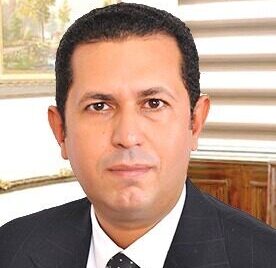Neutrality, respect, balance and rejection of foreign dictates are the constant bases of Egyptian foreign policy, which has great achievements to its credit in the Middle East region and internationally.
Since President Abdel Fattah El Sisi took office in 2014, Egypt’s foreign policy has been concentrated on strengthening its regional and global alliances, fostering mutual respect, supporting international organisations, boosting solidarity between countries and considering the economic dimension of international relations.
For the past eight years, foreign policy has been distinguished by its growing activity in regional and international forums, as evidenced by the numerous official visits by President Sisi abroad, making it clear to allies and enemies that Egypt of 2022 is much stronger than at any other time in the last 100 years with its army, popular unity and the wisdom of its leadership.
A recent report by the Egyptian ministry of foreign affairs covers the extensive work by Egypt’s leadership to strengthen relations with Africa, Europea, the Americas and Asia. During the past year, Egyptian diplomacy has played a tangible role in peace-keeping, climate change, combating terrorism, building partnerships for development, retrieving stolen antiquities from abroad, disarmament and international security, not to mention the establishment of the Cairo Centre for settling disputes and putting into effect policies regarding people trafficking, illegal immigration and human rights.
Since 2014, Egypt has restored its influential role at regional and international levels as our efforts for stability are recognised worldwide.
Minister of Foreign Affairs Sameh Shoukri chaired the 27th session of the Conference of Parties to the United Nations Framework Convention on Climate Change (COP27) in the Red Sea resort city of Sharm el-Sheikh last November.
The conference ended with a set of recommendations to prompt climate action on all fronts.
India has invited Egypt to participate as a guest in the G20 meetings that will be held during India’s year-long presidency of the intergovernmental forum.
Indeed, this points to Egypt’s regional and international position and influential role in global economic issues.
In May last year, Shoukry attended the BRICS Plus Foreign Ministers meeting at the invitation of the Chinese Foreign Minister, whose country presides over the BRICS bloc, comprised of five leading emerging economies — Brazil, Russia, India, China, and South Africa. Shoukry also took part in the annual World Economic Forum in Davos, Switzerland.
Within the framework of its multilateral diplomacy, Egypt participated in the UN General Assembly meeting, the Arab Summit, the African Union Summit, the African-American Summit, the Arab-Chinese Summit, Jeddah Summit for Security and Development and the Baghdad Summit for Co-operation and Partnership.
In appreciation of its sincere efforts not only for the sake of the region, but also humanity, Egypt won nine nominations for international committees and organisations in 2022. It has been elected to the Committee on the Elimination of Discrimination against Women (CEDAW) for 2023-2026 and the Africa Association of Anti-Corruption Authorities 2022-2025. It has been re-elected as a member of the International Civil Aviation Organisation (ICAO) Council for another three years (2023-2025) and the UN Peacebuilding Commission for two years (2023-24). Egypt has also won the International Telecommunications Union (ITU) Council Membership (2023-2026).
Egypt’s Foreign Ministry has also succeeded through its missions abroad, in co-operation with the ministry of Tourism and Antiquities to recover 111 statues that had been taken out illegally from Egypt.
Now Egypt has become the compass pointer to which the world is looking to restore stability and spread peace and security.
Mohamed Fahmy is the editor-in-chief of The Egyptian Gazette and the Egyptian Mail newspapers






Discussion about this post